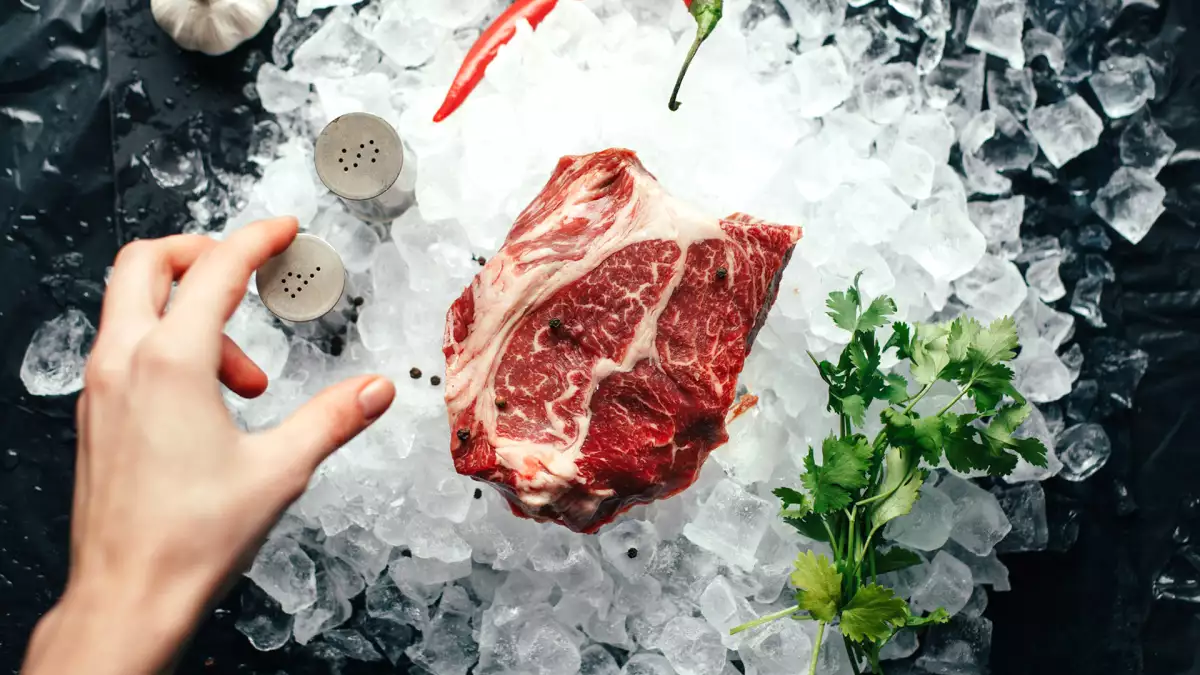What happens if you freeze meat the wrong way?

Freezing meat is one of the most efficient ways to preserve food and save time in the kitchen. But if you do it wrong, you can compromise the taste, texture and even the safety of the food. Here's what really happens when you freeze wrong - and how to avoid common pitfalls.
Danger No. 1: Freezer burn
If you freeze meat without protecting it properly, it can suffer the famous "freezer burn". This happens when the food comes into direct contact with cold air, causing dehydration on the surface. The result?
- Grayish or whitish spots on the meat
- A dry, rubbery texture after preparation
- Loss of flavor and juiciness
How to avoid: Use proper freezer bags, remove as much air as possible before sealing and, if possible, pack the meat in smaller, tightly-fitting portions.
Danger no. 2: Freezing meat while it's still warm
Many people are in a hurry and put freshly cooked or bought (still warm) meat straight into the freezer. This is a serious mistake for two reasons:
- The temperature in the freezer rises, putting all other stored food at risk.
- The meat can spend more time in the "danger zone" (between 41°F/5°C and 140°F/60°C), favoring the growth of bacteria before it actually freezes.
How to avoid it: Let the meat cool to room temperature (without spending more than 2 hours out of the fridge), and only then freeze it.
Danger no. 3: Freezing meat with too much liquid
Blood, broth and excessive moisture around the meat can form ice crystals, which damage the structure of the fibers. When defrosting, these crystals melt and the meat loses much of its natural juices.
How to avoid this: Dry the meat with a paper towel before packing. For meat with sauce or broth, freeze in sealed jars and leave room for expansion.
Danger No. 4: Freezing and refreezing
Defrosting meat, using a piece and refreezing the rest seems like a good idea, but it's one of the biggest health risks. Each cycle of defrosting and refreezing increases the chances of microorganisms proliferating.
How to avoid it: Portion the meat before freezing. That way, you only defrost the exact amount you're going to use.
Danger no. 5: Forgetting it in the freezer
Frozen meat doesn't last forever. Although freezing slows down the growth of bacteria, over time the nutrients and quality of the meat deteriorate.
Approximate shelf life:
- Ground beef: up to 3 months
- Chicken breast: up to 9 months
- Red meat in pieces: up to 12 months
- Seasoned meat: up to 2 months
Tip: Label with date and type of cut whenever freezing.
Practical summary: how to freeze meat the right way
- Use suitable packaging and avoid contact with air.
- Let cool before freezing.
- Dry thoroughly and portion before packaging.
- Never refreeze raw or cooked meat.
- Use date labels and respect the expiration date.
 Mirella Mendonça
Mirella Mendonça
Comments